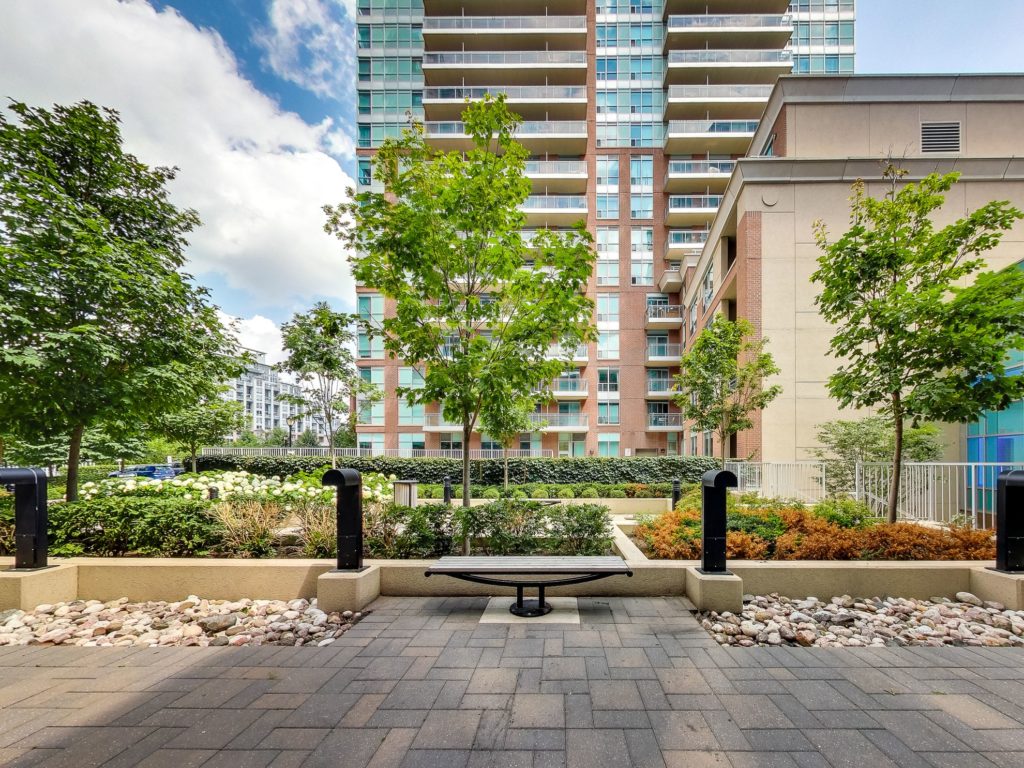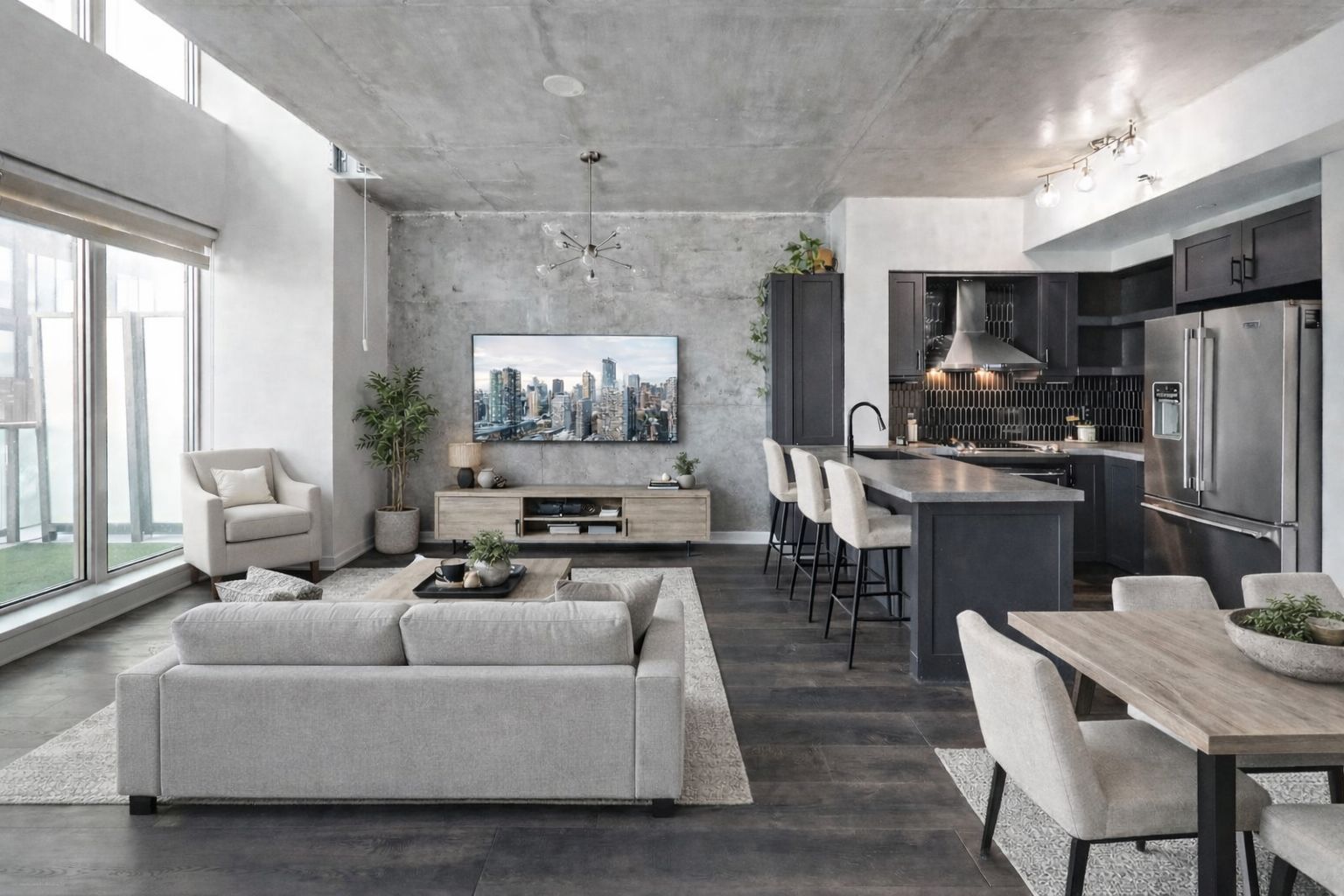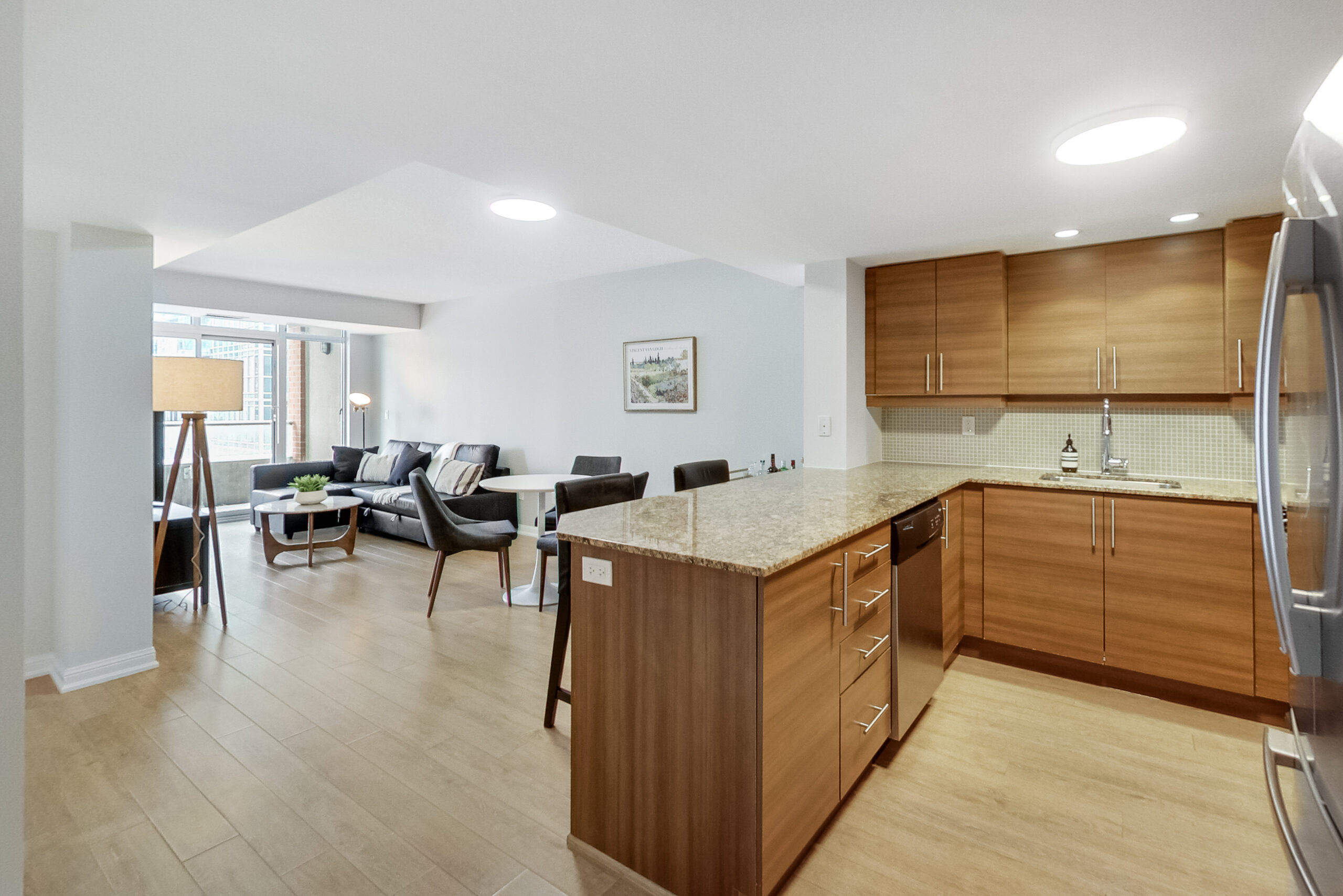
As busy local Realtors specializing in Liberty Village, we often get asked:
Is it better to live on a higher floor or a lower floor?
In fact, this very topic is one of our most-popular blog posts written back in 2016. So has anything changed? Let’s take a look.
Deciding whether to live on a lower or higher floor in a condo building has a lot to do with personal preference but there are some tangible things to be aware of when making the decision. Some people love amazing skyline views while others love the idea of being able to take the stairs. You may think that everyone wants to live on a high floor but, believe it or not, we have had many clients specifically request to only visit condos under the 10th floor. Let’s take a deeper dive, shall we?
Living On a Lower-Floor
Pros:
- Lower utility costs. Residents who live on lower floors can have cheaper hydro bills. We know that heat rises making uppitiest floors more susceptible to higher temperatures in the summer time. At least in the summer, you may need to use air conditioning less the lower in a building you are.
- Moving in and out is easier. You may not have to worry about booking the elevator, providing a deposit and running up and down to move/lift heavy furniture.
- No awkward/stressful waiting times in front of the elevator. Living on the ground-floor minimizes unpleasant waiting times to get in and out of your unit – especially during peak hours. Elevator traffic can be an inconvenience and living on a lower floor is practical for people who like easier access to their unit.
- Faster exit for an emergency evacuation. If there is an incident in the building, lower floor residents can exit out of the building faster than residents who live on higher floors.
- You won’t have to worry about being loud. If you are lucky enough to live on the ground-floor you may not have to worry about as much neighbourly noise (from units below).
- Larger terraces. Living on the lower floors (especially ground floors) will likely come with a more spacious terrace compared to the balconies on the higher floors.
- Convenient access for people who have a disability. If you’re someone who has a disability or requires a wheelchair wherever you go, living on the ground floor may make life easier.
- View of trees and greenery. Great for people who enjoy closer proximity to nature as opposed to a skyline view.
Cons
- Lack of natural light. The downsides of living on the lower floor are the lack of natural light blocked by other buildings or trees.
- Less safety. Living on the ground floor can be more susceptible to break-ins through the front door, windows and patio doors.
- Loud noises coming from above. There will likely be stomping, the sound of water running through, and other disturbances coming from above.
- Poorer views. Depending on the location of your building, the only view you’ll face will likely be of another building. Unless you choose to live outside of the city core, you’ll find yourself surrounded by more greenery and trees.
- May impact resale value. If you’re thinking of purchasing a condo to live or to invest in, keep in mind about how it will impact the resale value in the future. The view and noise levels may not be as desirable.
Living On a Higher-Floor
Pros
- Natural light and awesome views. One of the best features of living up top is tranquil views of the city or even a view of the lake. Picking the right view is extremely important as it can determine the value of your condo.
- Increased sense of security. Living on the higher floors provides more safety as opposed to lower floors. You can open your windows during the night without the worry of an unwanted circumstance.
- Higher resale value. Living higher up offers more privacy, better views and appreciates faster than a condo on the ground floor.
- A balcony with gorgeous views. You’ll find yourself connecting to the spirit of the city as you walk through your balcony doors. People on higher floors tend to spend more time on their balconies than those on lower floors.
- Fewer loud city noises. The higher up you are, the fewer noises you’ll hear from the outside meaning you won’t wake up to a loud honk in the middle of the night.
Cons
- Higher hydro bills. The AC will work harder to keep you cool during summer months as heat rises when you’re closer to the clouds.
- Moving in out and out can be a hassle. Moving is definitely not as effortless as living on the lower floor meaning that you’ll have to book the elevator, fill out a form and provide a deposit. Not to mention the added time and effort of moving and lifting furniture.
- Longer waiting times for the elevator. It will take you longer to get to your condo as you have to wait for the people below you to get to their units first.
While it really does come down to personal preference and budget, deciding to live on the 22nd floor vs the 2nd floor is a big one. There are pros and cons to both scenarios but an educated decision is generally the best one. Feel free to reach out any time if you have questions about the local condo market. Michael at [email protected].








[…] popular) blog post about the pros and cons of floor height in a condo building. You can find it here. Tip #13: Research upcoming/current construction in the area. Not only can […]